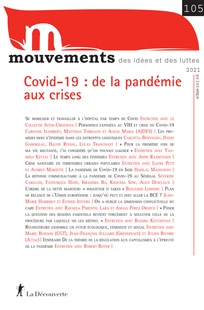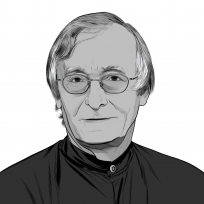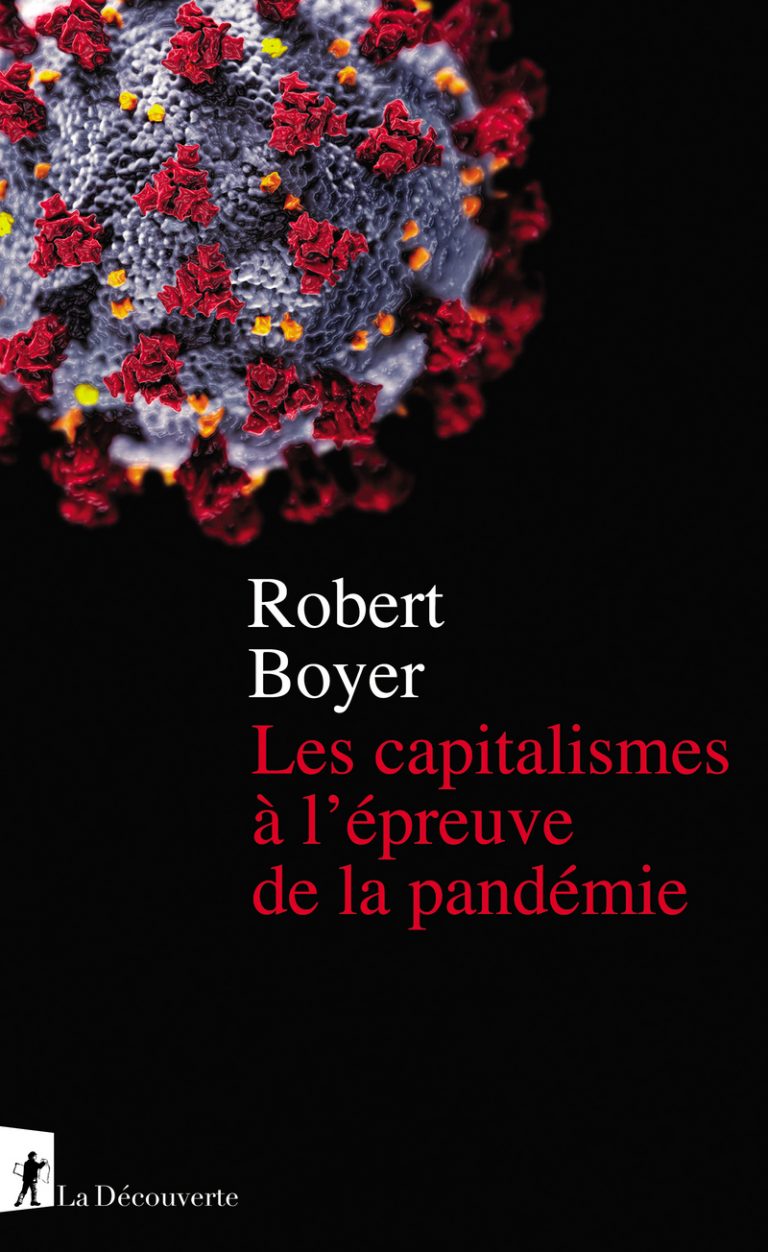Participation au Colloque de l’Institut des Amériques « Un an de Covid-19 dans les Amériques Première table ronde organisé les 27 et 28 avril 2021 par l’Institut des Amériques, l’UMR iGlobes, Mondes Américains (EHESS), l’IHEAL CREDA (Université Sorbonne Nouvelle) et le Campus Condorcet. Discussion : François-Michel Le Tourneau (iGlobes – CNRS). Interventions : – « L’irruption de la Covid-19 dans les Amériques, un an après » par Robert Boyer (CNRS). – « Les formes territoriales de la gestion de la pandémie au Pérou et en Équateur : entre crise organisationnelle et déficit de démocratie » par Fernando Barragan (IAEN Equateur), Maria Teresa Ore (PUCP) et Évelyne Mesclier (IRD). – « La pandémie de Covid-19, un catalyseur des mobilisations sociales au Guatemala ? Une enquête «à distance» entre ruptures et continuités » par Laura Cahier (Aix-Marseille Université) et Garance Robert (Université de Montréal). – « Le vote par correspondance aux États-Unis, nouvelle fracture partisane à l’ère Trump et post-Trump » par Marion Marchet (Sorbonne Université) et Victoria Gonzalez Maltes (EHESS – ENS). Avec la participation de Frédéric Keck (CNRS – LAS).
Entretien avec Grégoire Normand, La Tribune, N°7117, 27 mars 2021.
Conferencia magistral en el marco del seminario de economia social 2021 en el tiempos de la Covid-19, Camara de disputados, UAM Marzo 22 de 2021
El CESOP presentó el libro “Los capitalismos a la prueba de la pandemia”, de Robert Boyer
🔴 EN VIVO / Conferencia Magistral “Los capitalismos a la prueba de la pandemia” – YouTube , 22 de Marzo 2021. (En Espanol)
• El Centro es vínculo permanente para difundir el conocimiento científico: Netzahualcóyotl Vázquez Vargas
Boletín No. 6144
• El autor impartió una conferencia magistral donde planteó los retos sociales, en salud, economía y gobernanza
El Centro de Estudios Sociales y de Opinión Pública (CESOP) de la Cámara de Diputados, presentó el libro “Los capitalismos a la prueba de la pandemia”, de Robert Boyer, investigador del Institut des Amériques, Paris, Francia, quien impartió una conferencia magistral para dar a conocer sus consideraciones ante los retos de la emergencia sanitaria a nivel de salud, social, economía y gobernanza.
En el marco del Seminario de Economía Social 2021 en Tiempos de la Covid-19, el evento fue convocado en coordinación con la Universidad Autónoma Metropolitana (UAM)-Iztapalapa, el Centro de Investigaciones Socioeconómicas de la Universidad Autónoma de Coahuila y la Cámara Nacional de la Industria de Transformación (Canacintra).
A través de plataforma electrónica, Netzahualcóyotl Vázquez Vargas, encargado de la Dirección General del CESOP, destacó la primicia de la exhibición en la Cámara de Diputados de la obra a nivel internacional.
Resaltó que el CESOP es un vínculo permanente en la difusión del conocimiento científico, en particular de este libro para conocer sus aportaciones y el impacto de la pandemia en la dinámica económica y social.
Refirió que la economía mundial venía mostrando transformaciones y rezagos previos a la pandemia en áreas como competitividad salarial, inversión física y financiera en sectores dinámicos; constitución de nuevos conglomerados financieros regionales e interacciones empresa-gobierno, así como una reconfiguración global en su modelo de acumulación, por lo que con la publicación de esta obra será muy interesante conocer el impacto de la emergencia sanitaria, en esta y otras áreas de la dinámica económica.
Juan Manuel Herrera Caballero, director de la División de Ciencias Sociales y Humanidades de la UAM-Iztapalapa, resaltó la importancia de la temática del libro que mueve a la humanidad, cuya preocupación se muestra en diferentes vertientes ante la contingencia sanitaria, donde el trabajo académico y la operación de la industria continúan presentes frente a los problemas de las sociedades.
Esta obra, dijo, no sólo es un planteamiento, sino una contribución colectiva que nos va a dejar muchas tareas más allá de las reflexiones.
Conferencia magistral
Robert Boyer destacó que la pandemia es una crisis sin precedente histórico porque se presenta en todo el mundo y exige soluciones globales; no tiene relación ni similitud con las de 1929 ni con la de 2008, porque “aún no sabemos cómo salir de ella”. Dijo que se requiere utilizar mecanismos y soluciones diferentes y destacó la necesidad de un cambio en la gobernanza, porque la incertidumbre radical del virus desestabiliza a expertos y gobiernos.
Subrayó que la pandemia rehabilitó el papel del Estado, de empresarios y asalariados, colocando a la salud en una prioridad en medio de la globalización, ya que con la pandemia no hay ningún desarrollo si no hay seguridad sanitaria, lo que alentó el regreso del Estado a tomar el riesgo económico e invertir en la investigación científica.
El experto francés planteó un cambio radical para garantizar los servicios médicos y abrir las empresas, donde el Estado invierta en alternativas de salud para solucionar la apertura y recuperar la estabilidad económica y financiera mediante un sistema centrado en la salud, educación, capacitación, cultura, en el sentido de la legitimación del orden social y económico.
“La solución a la crisis no son los productos financieros sofisticados, sino encontrar vacunas nuevas y que todos los países tengan acceso a ellas”, porque los más pobres no lo logran, evidenciando un modelo excluyente y desigual a la salud, en una variante neoliberal, donde los ricos prosperan y los pobres se rezagan. A diferencia de la crisis financiera de 2008, en la pandemia de 2020 los gobiernos no tuvieron herramientas para organizar el sistema público de salud.
Robert Boyer apuntó que se deben “sincronizar los avances en salud y la recuperación económica” porque las decisiones iniciales de los Estados, en general, fueron muy equivocadas y nadie ha encontrado una buena solución, al considerar que con el confinamiento hay una restricción de las libertades, no obstante que esta medida ha preservado la salud y vida de la población.
Afirmó que se desarrolló de forma increíble el nuevo capitalismo de la información tecnológica a nivel mundial, a raíz del distanciamiento de las personas, debilitándose el antiguo capitalismo. “El capitalismo digital muestra todo su poder” a través del comercio electrónico mundial, donde las grandes empresas tienen gran control sobre la sociedad y la economía por su infraestructura tecnológica y electrónica.
La velocidad de la transformación de la economía digital los empleos no se quedarán estáticos, se requerirá de constante actualización y capacitación, privilegiando la educación. También, previó que se requerirá un nuevo esquema fiscal para desarrollar el nuevo modelo económico-tecnológico.
Señaló entre los retos por la crisis sanitaria está el detener el desempleo, luchar contra la pobreza y desigualdad, garantizar la salud y preservar el medio ambiente.
Al comentar la obra, Alenka Guzmán, profesora investigadora de la UAM-Iztapalapa, refirió que a través de nueve capítulos se expone el análisis de “un evento desconcertante porque el virus SARS-CoV-2 aparece como algo desconocido”. Evidencia que se está en el espacio descubriendo otros planetas; sin embargo, en el planeta se descuida profundizar en los problemas que existentes en este mundo.
Planteó la prioridad de que los países repiensen la forma en que se organiza el sistema para dar prioridad a la salud enlazada con la economía y la libertad de las personas, porque la emergencia sanitaria detiene la economía, donde los gobiernos, al principio se tratan de mimetizar y adoptar medidas similares como el confinamiento, que significa detener la economía revelando los rezagos sociales y económicos existentes en los países.
La obra dijo, muestra el retorno del Estado para enfrentar la crisis sanitaria y reivindica los ejes centrales de la teoría de la regulación. Además, diferencia la naturaleza de las crisis financieras anteriores a la pandemia y muestra cómo la han atendido los diferentes capitalismos, de acuerdo a su desarrollo y posibilidades.
A su vez, Miguel Ángel Toro Hernández, presidente de la Comisión de Enlace Legislativo de la Canacintra, señaló la falta de protocolos de cooperación y coordinación internacional de México con Estados Unidos, Canadá, Unión Europea y Asia Pacífico, para paliar los efectos negativos del cierre de la planta productiva y pérdida de empleos.
Comentó que la pandemia ha puesto a prueba a todos los sectores, enfocando el esfuerzo en las áreas esenciales; no obstante, no se trabajó de forma coordinada para sincronizar las decisiones y acciones en favor de las cadenas productivas, sin demeritar el abasto de bienes.
Gilberto Aboites Manríquez, doctor en ciencias sociales de la Universidad Autónoma de Guadalajara, destacó que la globalización ha permitido tener respuestas a gran velocidad a través de las aportaciones de las instituciones de investigación de diversos países, dejado atrás la secrecía y propiedad intelectual que permitió, de una forma inesperada, dar respuesta con la vacuna, privilegiando las relaciones de los científicos por un fin común.
Esta tendencia no la siguieron los Estados Nación, cuyo papel y legitimidad es cuestionable porque no tuvieron capacidad para reaccionar de forma inmediata y construir nuevas formas de relación social con los ciudadanos. La pandemia ha generado una caída generalizada en el consumo privado, provocando un incremento del ahorro, ¿Cuáles son las formas o instrumentos para gestionar este ahorro?, es un tema relevante para los economistas, consideró.
- Les matins de l’Economie, France culture, Pour enrichir et approfondir les questions d’actualité, deux séquences d’invités : la Question du jour à 7h13 que Guillaume Erner posera au meilleur expert du sujet, Robert Boyer. Le grand thème du jour qui occupera, en deux parties, le cœur des Matins de 7h40 à 8h00 et de 8h20 à 8h45.le 13 janvier 2021.
Participation au Blog d’Alternatives Economiques, le 8 janvier 2021.
Editions la découverte, Paris, 1er Octobre 2020.
Annexes : Graphiques, figures et tableaux complémentaires à l’ouvrage, Présentation, Introduction, Chapitre 1, Chapitre 2, Chapitre 3, Chapitre 4, Chapitre 5, Chapitre 6, Chapitre 7, Chapitre 8, Chapitre 9, Conclusion.
Depuis le début de la crise mondiale de la covid-19, les questionnements sur l’avenir des capitalismes se sont multipliés. Et nombre de voix se sont élevées pour que les « jours d’après » ne soient plus jamais comme « ceux d’avant ». Dans le court terme, les pronostics étaient confrontés à une incertitude radicale, invitant à la prudence : il faudra du temps pour démêler l’écheveau des responsabilités et construire d’éventuelles alternatives.
D’où l’importance de comprendre les ressorts de la crise. Comme l’a montré le célèbre 18 Brumaire de Louis Bonaparte de Marx (1852), les meilleures analyses « à chaud » sont le fait d’auteurs ayant une vision de la dynamique du système sur un horizon long. C’est pourquoi Robert Boyer, contributeur majeur de l’École de la régulation – qui étudie l’économie comme partie intégrante de sociétés traversées par l’histoire –, est bien placé pour relever ce défi. Lors de crises précédentes, il a démontré la valeur explicative de cette approche, qui prend en compte à la fois les inerties tendant à la reproduction du système et les forces impulsant sa transformation : l’issue n’est pas écrite à l’avance et plus longtemps durent les crises, plus le retour à la situation antérieure devient improbable.
Dans cet essai, l’auteur donne à comprendre les processus déclenchés en 2020 et éclaire sur le champ des possibles. La dislocation des relations internationales, l’éclatement de la zone euro, la déstabilisation de l’État social, la montée des populismes ne sont pas improbables. Mais n’est pas non plus exclue une grande bifurcation vers un nouveau modèle construit sur la complémentarité entre éducation, formation, santé et culture, qui répondrait à la demande de solidarité des citoyens et aux exigences de la transition écologique.
Tribune, Idées : Coronavirus et pandémie de COVID-19, Le Monde 27 mars 2020,
Intervenants : Robert Boyer (Centre Cournot, Institut des Amériques), Xavier Ragot (OFCE), Les débats du Centre Cournot, en ligne, mars 2020.




